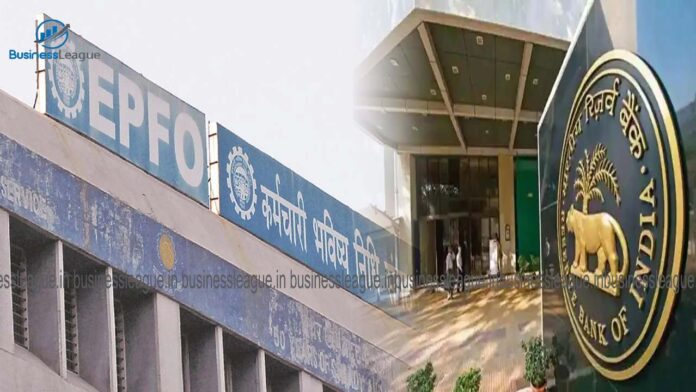EPFO Fund Management: The EPFO is the country’s largest retirement fund, managing savings of over ₹25 lakh crore for approximately 300 million employees.
The Reserve Bank of India (RBI) has provided some simple suggestions to the Employees’ Provident Fund Organization (EPFO) to improve fund management.
This year, the Labour Ministry had sought help from the RBI to provide information on the shortcomings in EPFO’s investment and fund management, such as accounting, risk management and working methods.
RBI gave these suggestions to EPFO
The RBI said the EPFO should improve its investment strategies. Currently, the EPFO invests 45-65% of its funds in government bonds, 20-45% in debt instruments, 5-15% in stocks, and 0-5% in short-term debt. By 2025EPFOThe Reserve Bank of India (RBI) promised its members an interest rate of 8.25%, while government bonds averaged 6.86%. In the stock market, the Nifty 50 and Sensex returned 5.3% and 5.1%, respectively.
The EPFO currently sells shares to generate profits, but does not monitor market conditions. The RBI suggested that the same rules be applied to all investments, rather than just new funds, each year. Furthermore, new methods should be adopted to ensure the selling strategy applies to all investments, not just shares. Currently, the EPFO sells shares that are four years old if they generate significant profits.
Each fund requires separate investment according to needs.
As of March 2024, EPFO has 40.7% of its money in state government loans, 16.3% in central government bonds, 15.9% in public sector bonds, 9.8% in central government accounts and 9.5% in private sector bonds.Sensex and NiftyThe RBI said the EPFO’s fund management was inadequate. It failed to disclose losses and set aside funds for bad investments. Many old bad investments are still held, which is not correct.
The RBI also pointed out that the EPFO simultaneously acts as a fund manager and regulator, which could lead to a conflict of interest. However, it is not a direct fund manager but rather oversees others, which mitigates this issue. Nevertheless, its regulatory and fund management functions should be separated.
A single investment strategy for the three EPFO funds—provident, pension, and insurance—is not appropriate. The RBI has recommended that each fund should have a unique investment strategy tailored to its needs. This can make the funds more secure and profitable. These suggestions are essential for improving employees’ retirement funds before Diwali 2025.




